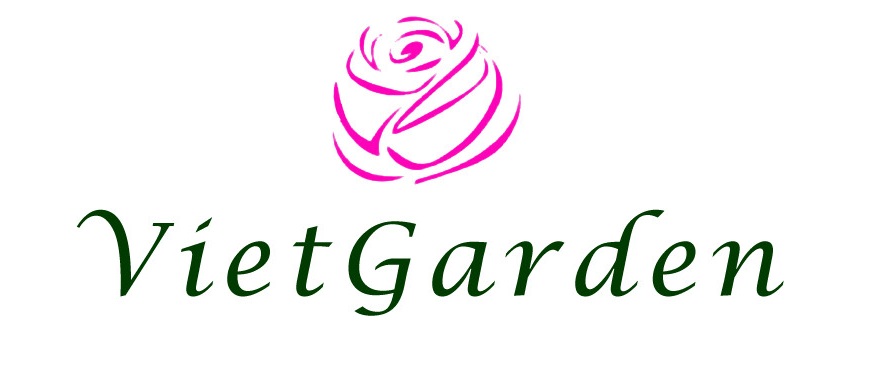Sober living
Massachusetts Sober House Certification and Compliance Guide
27.d Documentation that residents are formally linked Twelve-step program with the community such as job search, education, family services, health and/or housing programs. A weekly schedule details recovery support services, events and activities. Evidence that residents increase recovery capital through such things as recovery support and community service, work/employment, etc. Join our sober living community or refer a client, family member, or friend. Submit an application online and receive a call back within 24 hours. Read more about the National Alliance for Recovery Residences (NARR), including its history, standards, and impact on recovery housing nationwide.
- She began working at the Boston Municipal Court in the Probation Department in 1994.
- Transitioned into the financial industry as Founder and Chief Operating Officer of a large Massachusetts registered mortgage lender.
- Verification that furnishings are typical of those in single family homes or apartments as opposed to institutional settings.
- 26.b Evidence that mechanisms exist for residents to inform and help guide operations and advocate for community-building.
Recovery Housing Program (RHP)

Although sober houses are not subject to the same licensing requirements as healthcare facilities, they must comply with local health codes and zoning regulations, ensuring a baseline of safety and habitability. (f) The bureau shall prepare, publish and disseminate a list of alcohol and drug free housing certified pursuant to this section; provided, however, that the list shall be updated bimonthly. The list shall be disseminated to the director of the https://explorersnook.com/stages-of-alcoholism-know-the-warning-signs-and/ division of drug rehabilitation and to each state agency or vendor with a statewide contract that provides substance use disorder treatment services. The commissioner of probation shall inform all district and superior court probation officers and the chief justice of the trial court shall inform all district and superior court judges on how to access the list.

CCRI (Center for Community Recovery Innovations) Grant Programs
All MASH-certified sober homes follow the National Alliance for Recovery Residences (NARR) standards and have been independently inspected. In severe cases where non-compliance threatens public safety or resident welfare, Massachusetts law permits emergency actions such as injunctions or restraining orders to cease operations immediately. Maintaining compliance is critical to ensuring the safety and success of both the sober house and its residents. Beyond certification, sober houses must comply with local and state regulations. Violations of health and safety codes can result in fines ranging from $100 to $500 per day. Repeated violations may lead to court orders mandating compliance or temporary closures until issues are resolved.
In accordance with this requirement, MASH serves as the primary agency for accountability of all certified homes in Massachusetts. Our organization also provides supervision and training for sober homes, and maintains a database of more than 180 MASH-certified sober homes. What is expected of residents of a sober home? Residents of sober homes are expected to abstain from alcohol and drug use, other than prescribed medications, and to refrain from prescription misuse. Payment terms for sober homes vary, and residents are given written house agreements.
Physical Environment Domain
MASH-certified sober homes are governed by standards that address safety from an administrative, operational, property, and “good neighbor” perspective. The legal framework governing sober houses in Massachusetts is multifaceted, involving state and local regulations. Massachusetts General Laws Chapter 111, Section 127A, empowers the Department of Public Health to establish health and safety standards for residential facilities. This statute ensures sober houses maintain a habitable environment for residents. Massachusetts General Laws empower state agencies to regulate health and safety standards in residential settings.
This training is for the sober house live-in house mentor.
The Massachusetts Alliance for Sober Housing (MASH) offers voluntary certification, which signifies adherence to best practices. Certification requires compliance with National Alliance for Recovery Residences (NARR) standards, covering health, safety, and ethical operations. In mash sober housing July 2014, Bill H.1828 was passed into law mandating the monitoring and voluntary certification of MA Sober Homes.
MASH 101 for Potential Operators
Please visit In The Rooms to learn more. The Executive Office of Human Services (EHS) has made available a series of guidance documents addressing COVID-19 at Mass.gov webpage. Please click the link for the updated Residential and Congregate Care Program Guidance for COVID-19 Exposure.
The Massachusetts Alliance for Sober Housing (MASH)
Brian Murphy is the owner and operator of Recovery Upfront, a men’s sober home in Weymouth established in 2007. Prior to establishing his own business, Brian worked in various management positions at a contract engineering company in Boston and Los Angeles. He has served on the MASH Board of Directors since the organization’s inception in 2007. Job descriptions include staff responsibilities, eligibility, and knowledge, skills and abilities needed to deliver services. Ideally, eligibility to deliver services includes lived experience recovering from substance use disorders and the ability to reflect recovery principles.
Core Principle: Uphold Residents’ Rights
Compliance is monitored through regular inspections and audits by MASH. These evaluations ensure continued adherence to certification criteria. Identified deficiencies must be addressed to maintain certification, reinforcing a commitment to quality care and support.
Chapter 165, Section 37 of the Acts of 2014 required the Department of Public Health (DPH) to establish a process for the voluntary certification of alcohol and drug free (ADF) housing. This legislation limits state agencies and their vendors to referring to certified ADF housing. DPH awarded a contract to the Massachusetts Alliance for Sober Housing (MASH) to be the certifying body, and the training and technical assistance vendor. These trainings equip operators and staff with the knowledge to maintain compliance, support residents, and foster sustainable sober living communities. Massachusetts General Laws Chapter 40A, the Zoning Act, allows municipalities to regulate land use through zoning ordinances, affecting where sober houses are located. While these homes are protected under the federal Fair Housing Act and the Americans with Disabilities Act, local zoning laws can present challenges.
- Beyond certification, sober houses must comply with local and state regulations.
- Documentation that residents are oriented to emergency procedures.
- Job descriptions include staff responsibilities, eligibility, and knowledge, skills and abilities needed to deliver services.
- After working in investment banking and health care startups, Jeff joined Square Medical Group with the goal of creating responsible and effective behavioral health treatment in New England.
- She is an enthusiastic leader who develops robust community partnerships and enjoys collaborating with community leaders and organizations.
Noel holds an MBA in Nonprofit Management and has contributed to impacting business outcomes through effective organization, prioritization, and execution of key projects. Noel prides himself in his methodical and calculated approach to problem solving and hopes to utilize his experience in a positive way as a MASH Board Director. Failure to secure adequate insurance exposes operators to financial liabilities and legal challenges. In the event of a lawsuit or claim, uninsured operators may face substantial expenses, jeopardizing the operation of the sober house and resident well-being. Insurance and liability are critical for sober house operators.
Community involvement strengthens oversight. Neighborhood associations and local governments engage with operators to address concerns such as safety or community impact. Public hearings and meetings provide platforms for dialogue, balancing the needs of residents and the broader community. Transition (e.g. entry, phase movement and exit) rituals promote residents’ sense of belonging and confer progressive status and increasing opportunities within the recovery living environment and community. Noel Dennis is the owner-operator of Men of Dignity Sober Living, LLC, which provides sober housing for women and men throughout various communities in Massachusetts.

